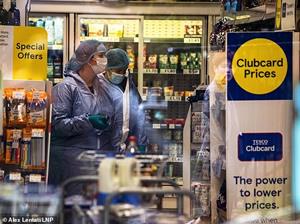 Authorities in London, England, have arrested a man accused of injecting an as yet unidentified substance into microwaveable foods displayed at three supermarkets in the Borough of Fulham. Products at small-format high street stores operated by Waitrose, Sainbury’s and Tesco were affected. The premises had to be closed and forensic investigations were initiated. Initial reports suggest that the perpetrator of the episode was mentally deranged
Authorities in London, England, have arrested a man accused of injecting an as yet unidentified substance into microwaveable foods displayed at three supermarkets in the Borough of Fulham. Products at small-format high street stores operated by Waitrose, Sainbury’s and Tesco were affected. The premises had to be closed and forensic investigations were initiated. Initial reports suggest that the perpetrator of the episode was mentally deranged
The last case of deliberate contamination in the U.K. took place in the 1978 when a militant group claimed to have injected mercury into citrus imported from Israel as a politically-inspired action.
 Deliberate and malicious contamination of foods is difficult to prevent and is extremely expensive to remedy. The effect on brand image of a food product could be disastrous unless the response is carefully implemented. This was the case with the Chicago Tylenol murders in 1982 that serves as the standard for approaching any crisis. Any deliberate incident of food contamination, short of juvenile licking of ice cream in display freezers, will in all probability be prosecuted under Federal agro-bioterrorism statutes, entailing severe penalties.
Deliberate and malicious contamination of foods is difficult to prevent and is extremely expensive to remedy. The effect on brand image of a food product could be disastrous unless the response is carefully implemented. This was the case with the Chicago Tylenol murders in 1982 that serves as the standard for approaching any crisis. Any deliberate incident of food contamination, short of juvenile licking of ice cream in display freezers, will in all probability be prosecuted under Federal agro-bioterrorism statutes, entailing severe penalties.